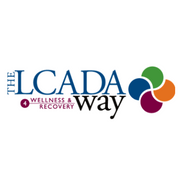Can Exercise Help With Addiction Recovery?

Most patients benefit from a multi-faceted approach to addiction recovery, and for many individuals, exercise proves invaluable. Here’s why you should consider taking up an exercise routine while working through addiction recovery.
4 Ways Exercise Can Help With Addiction Recovery
1.“Feel Good” Endorphins
About 53% of people who struggle with addiction have also been diagnosed with a mental health issue. Because of this, many people struggled to find a treatment option that will address both of these concerns. However, focusing on exercise and physical health can be an excellent first step. Exercise can also treat depression, anxiety, and everyday stress by boosting endorphin production and improving how a person feels.
Serotonin, dopamine, and other hormones have a complex impact on how you feel, and exercise can help bring these hormones into balance. New research indicates anandamide, a naturally occurring hormone, gives distance runners a sense of euphoria. However, unlike drugs and alcohol, aerobic exercise is a healthy coping strategy with long-term benefits.
2. Focus and Structure
 When you’re in addiction recovery, you need an outlet to focus and channel energy. Exercise gives people a goal they can focus on and a constructive way to spend their time. It adds structure to the routine and opens the door to new ambitions. As you work to reach new milestones, it takes your focus away from the struggles of the recovery process.
When you’re in addiction recovery, you need an outlet to focus and channel energy. Exercise gives people a goal they can focus on and a constructive way to spend their time. It adds structure to the routine and opens the door to new ambitions. As you work to reach new milestones, it takes your focus away from the struggles of the recovery process.
Exercising in a group setting is also an effective way to meet new people and bond over activities that don’t involve alcohol or drugs. Once you have those connections, you might feel accountable to an organization or team.
3. Neural Functioning
Exercise increases the blood supply to your brain, supports better neural signaling, and counteracts some of the physiological damage that can be caused by drugs and alcohol.
Mounting evidence also suggests people who exercise build new neurons in the hippocampus, a process called neurogenesis. The hippocampus region is believed to help us regulate emotions, create memories, and learn. Some researchers hypothesize that improved neuroactivity in the hippocampus also translates into greater cognitive flexibility—which in turn can help people break from circular behavior and thinking.
4. An Incentive to Stay Sober
Exercise reinforces sobriety. The more you exercise, the more invested you’ll become in your physical wellness. If you exercise regularly and keep up with your commitment, you can build on your achievements and enjoy a healthier lifestyle. Because fitness goals are cumulative, the longer you work out, the more likely you are to keep your commitment to exercise.
Combined with counseling, a supportive environment, and medication-assisted treatment, regular exercise is a promising approach to addiction recovery. The LCADA Way in Lorain, Medina, and Erie counties can provide the resources you need to shake addiction for good—including sober housing, medication, and counseling. They even offer help with child care, transportation, and insurance and Medicaid coverage. Call (440) 989-4900 today for 24-hour assistance across Ohio, or visit their website for more information.
About the Business
Have a question? Ask the experts!
Send your question

